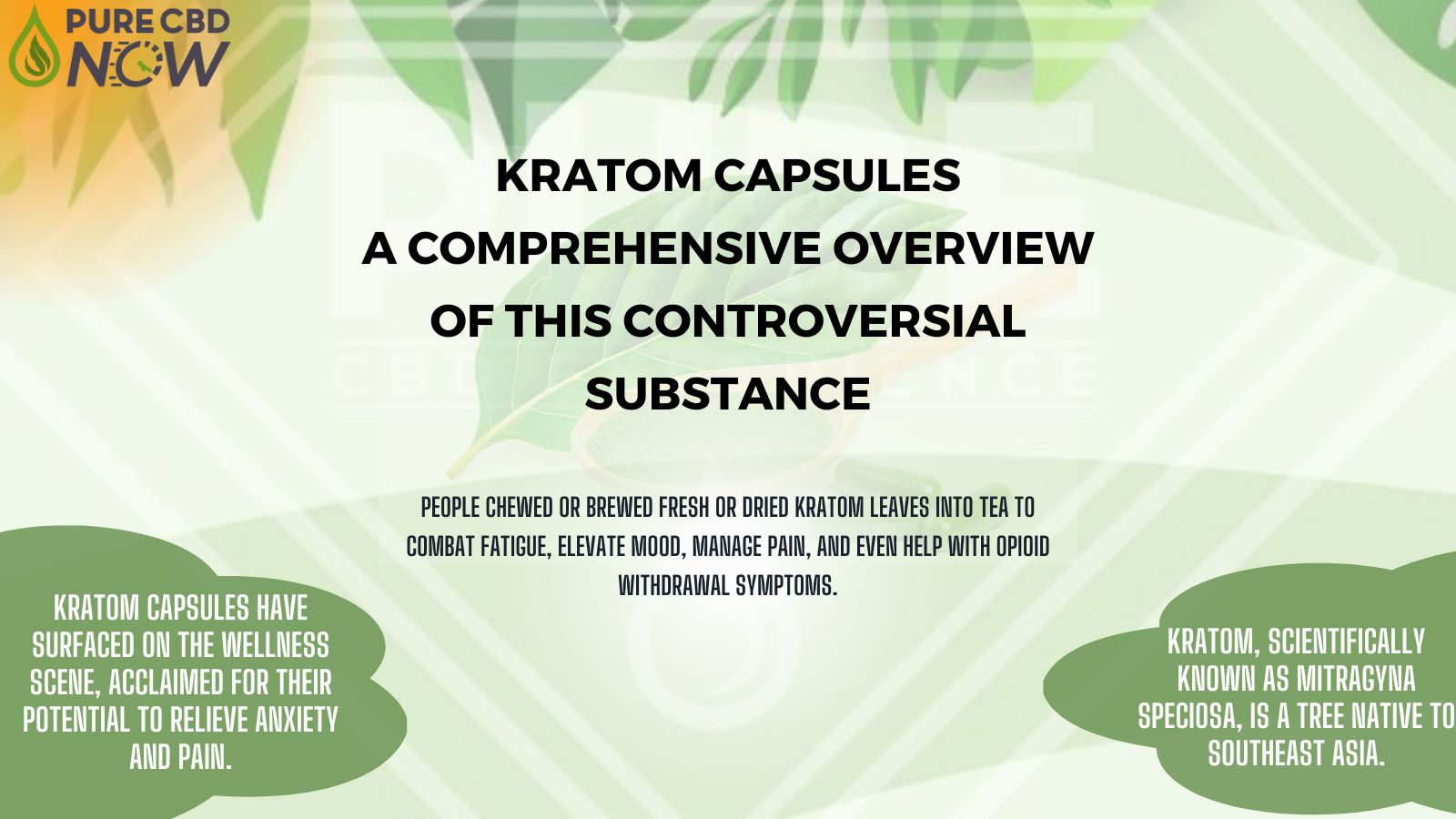In an era where natural supplements flood health stores, each one promising a plethora of health benefits, distinguishing fact from fiction is imperative. Among the many, Kratom capsules have surfaced on the wellness scene, acclaimed for their potential to relieve anxiety and pain. However, the consumption of these capsules is not without controversy, given their possible detrimental effects. Let’s delve into this substance, unpacking its potential benefits and risks.
Introduction to Kratom
Kratom, scientifically known as Mitragyna speciosa, is a tree native to Southeast Asia. The local populations of countries like Indonesia, Malaysia, and Thailand have used the leaves of the kratom tree traditionally for centuries due to their reputed therapeutic properties. People chewed or brewed fresh or dried Kratom leaves into tea to combat fatigue, elevate mood, manage pain, and even help with opioid withdrawal symptoms.
By 2020, reports suggested that 15 million people in the United States were using Kratom. Sellers often market it as a dietary supplement, offering it in various forms, including capsules, powders, and teas.
Different Strains of Kratom
The three main strains of Kratom differ in their leaf color depending on their level of maturity:
- Red Vein Kratom
- Green Vein Kratom
- White Vein Kratom
These strains all contain the same active compounds, mitragynine, and 7-hydroxymitragynine, but in different proportions, hence their diverse effects. Red Vein Kratom, the most mature strain, is known for providing potent pain relief and sedative effects. On the other hand, Green Vein Kratom, midway in maturity between red and white, reportedly offers mild stimulation, enhanced focus, and moderate pain relief. The White Vein Kratom, sourced from the least mature leaves, is said to stimulate and boost energy levels.
However, these claims largely rest on anecdotal evidence, and scientific research is needed for their substantiation.
Legal Status of Kratom Capsules
The legality of Kratom capsules and other forms is not universal and varies across the globe. In the United States, the legality of Kratom is intricate, with laws varying state by state. For instance, while Kratom is legal in New Jersey, it is prohibited in states such as Alabama, Arkansas, Indiana, Vermont, and Wisconsin.
Applications of Kratom
Kratom is used for a variety of reasons. Some individuals affirm that it helps manage symptoms of depression and anxiety, while others use kratom capsules to alleviate chronic pain. Its unique characteristic of acting as a stimulant in small doses and exhibiting opioid-like effects in higher doses also appeals to those grappling with opioid addiction.
Potential Risks and Side Effects of Kratom
Despite the potential benefits, kratom capsules can lead to a wide array of side effects, from mild to severe. Lower doses can result in increased energy, sociability, and alertness. Conversely, higher doses can cause adverse effects like dry mouth, sweating, itching, nausea, vomiting, constipation, and frequent urination.
More serious health risks associated with Kratom capsules include seizures, hallucinations, and symptoms of psychosis. Furthermore, chronic use of Kratom can lead to dependence, causing withdrawal symptoms upon cessation.
Recognizing Kratom Dependence and Seeking Assistance
Dependence on Kratom capsules can cause various physical and cognitive changes. Individuals may develop cravings for the substance and suffer withdrawal symptoms when they attempt to stop using it.
These symptoms can include:
- Muscle aches
- Irritability
- Hostility
- Aggression
- Emotional changes
- Runny nose
- Insomnia
If you or a loved one is struggling with Kratom dependence, it’s crucial to seek professional assistance. Various resources are available, including support groups, inpatient and outpatient treatment programs, and cognitive-behavioral therapy.
Conclusion
While some individuals extol Kratom capsules for their alleged therapeutic benefits, it’s vital to approach their use with caution due to the risk of dependence and significant side effects. Anyone considering kratom capsules for health-related purposes should consult with a healthcare professional first. As with any substance, understanding the potential risks, benefits, and appropriate use is essential.
References:
https://pubmed.ncbi.nlm.nih.gov/30786220/
https://pubmed.ncbi.nlm.nih.gov/32452943/
https://www.fda.gov/news-events/public-health-focus/fda-and-kratom
https://www.dea.gov/sites/default/files/2020-06/Kratom-2020_0.pdf






